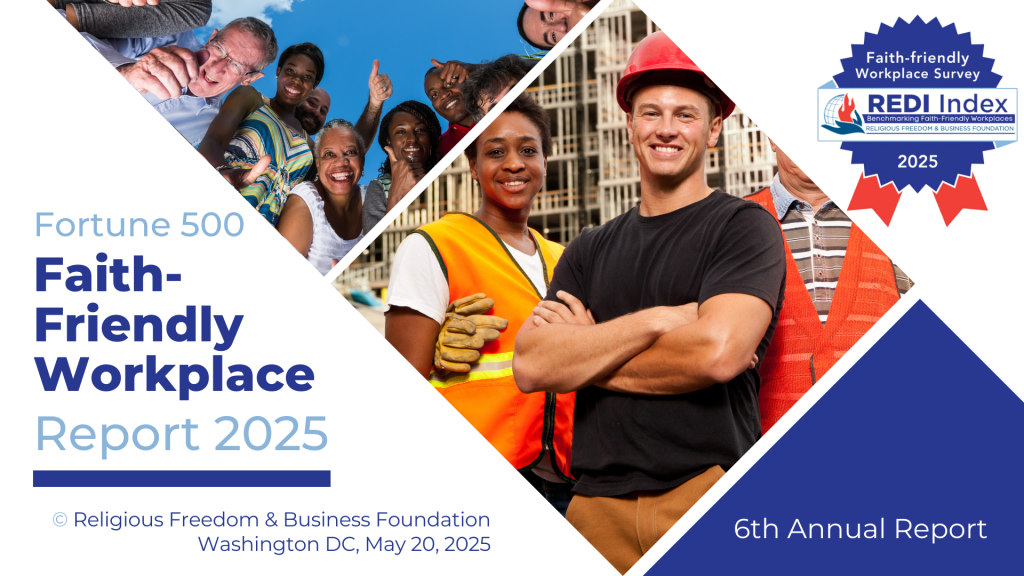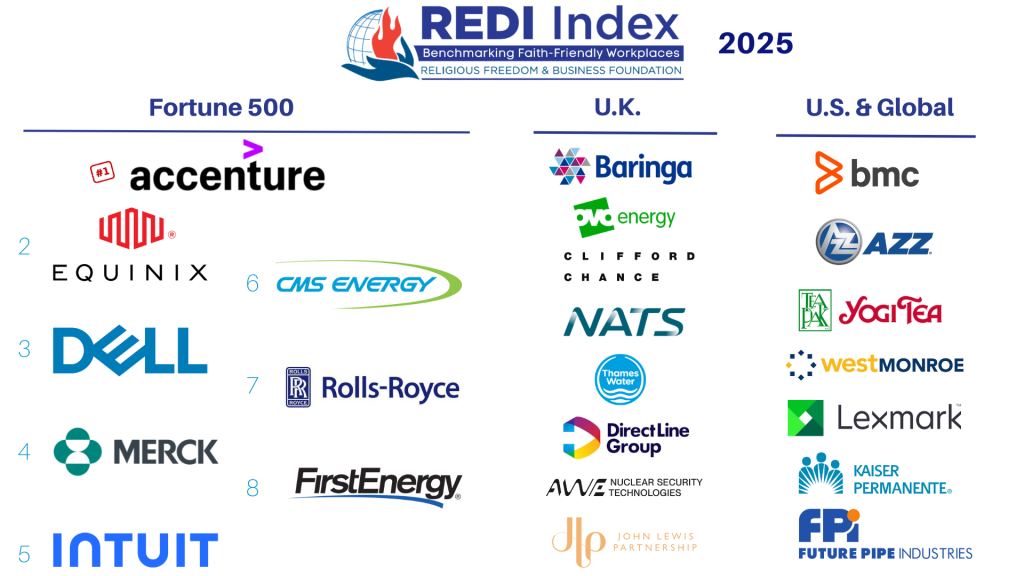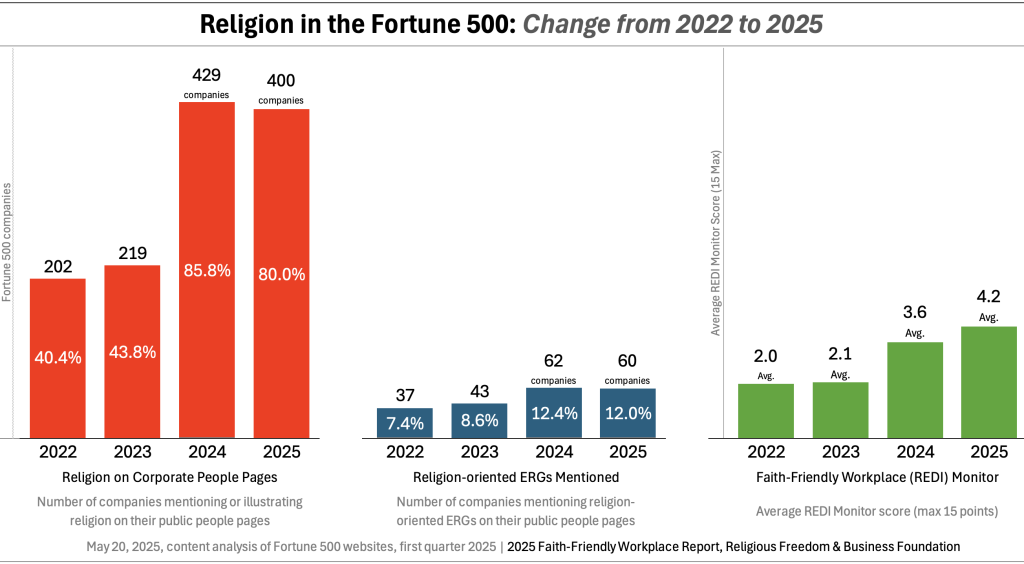 Accenture takes top spot as most faith-friendly workplace
Accenture takes top spot as most faith-friendly workplace
Accenture is most faith-friendly workplace among Global Fortune 500 companies in 2025, for the third year running. Equinix takes the number two spot, with DELL, Merck and Intuit rounding out the top five spots on the Religious Freedom & Business Foundation’s 6th annual Faith-Friendly Workplace REDI Index survey.
CMS Energy, Rolls-Royce, and FirstEnergy also score highly among Fortune 500 companies for their faith-friendly policies and practices. Lexmark made its debut on the index as a record number of global companies participated, including those based in the U.K., and for the first time, in the Middle East, with the entry of Future Pipes Industries.
The REDI survey has 11 indicators of best practices including having faith-and-belief employee resource groups (ERGs), sharing best practices with other companies, and honoring holy days of their employees, among other accommodations such as dress and diet.
In addition to the REDI Index, we monitor the People web pages of Fortune 500 companies.
Faith-oriented inclusion and belonging initiatives have grown in intensity in Q1 2025. For example, the average REDI Monitor score increased significantly from 2024 to 2025 (3.6 to 4.2), and more than doubled since 2022, as shown in the chart.
As mentioned, the average REDI Monitor score increased significantly from last year. This indicates an increase in the intensity with which companies are embracing faith-friendly workplaces. Another indicator is that for the first time in 2025, eight Fortune 500 companies mentioned the REDI Index on their websites.
At the same time, we saw a slight drop (from 62 to 60) in companies reporting that they have faith-based ERGs.
Also, coinciding with many companies decreasing the visibility of inclusion and belonging information on websites, many U.S. companies stopped participating in external benchmarking surveys this year. Indeed we saw a marked increase in U.K. and international participation even as some U.S.-based firms took a year off.
ABOUT THE INDEX AND MONITOR
The Faith-Friendly Workplace REDI Index is an international benchmarking survey that companies use to track their progress in (and be recognized for) embracing religion and belief (including non-theistic beliefs) as an integral part of their overall commitment to workplace belonging and success. The 2025 REDI covers activities occurring during the 12 months ending March 31, 2025.
Of the companies participating in the REDI Index survey:
- • 75% of their public-facing websites mention religion and/or describe how religion is part of their workplace belonging commitments. 21% mention this on other webpages. Only 4% make no mention of religion on their websites.
- • 92% have formally approved, faith-and/or-belief-oriented employee resource groups (ERGs) or other such official employee-led groups whose aim is to foster a welcoming, faith-friendly workplace aligned with the company’s purpose.
- • 92% described their practices related to faith-oriented ERGs or other faith-oriented activities to other companies.
- • 100% address religion (incl. faith and belief) as a topic in their internal HR training.
- • 25% provide professional chaplaincy services to serve their employees, while an additional 50% provide other spiritual care opportunities.
- • 92% seek to understand the faiths and beliefs of their clients and stakeholders.
- • Most have procedures that are communicated annually to request accommodations.
- • 88% report that their employees participated in related external professional conferences or faith-related professional events.
- • 58% match employee donations to faith-based and religious organizations.
- • All report celebrating or honoring holy days of their employees. 58% do this both internally and externally.
The public websites of Fortune 500 companies are carefully analyzed by our staff to determine if they include religion as part of their belonging and inclusion initiatives. The REDI Monitor allows us to assess the state of faith-friendly workplaces in FTSE 100 and BSE 100 companies. Not all topics from the opt-in REDI Index survey can be observed. Therefore, scores are given for those mentions of religion we can see, including: having faith-oriented ERGs; mentioning religious nondiscrimination and/or inclusion, as well as the rationale for such policies; linking to additional information; and (for some) mentioning being on the REDI Index or Monitor.
In all, among the Fortune 500, 177 companies saw an increased REDI Monitor Score, while 136 saw their score go down. 187 companies stayed the same.
For more information, down load the full report here or visit our Faith-Friendly Workplace REDI page here.


